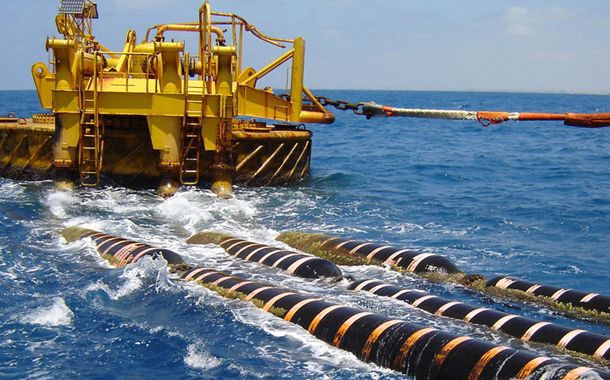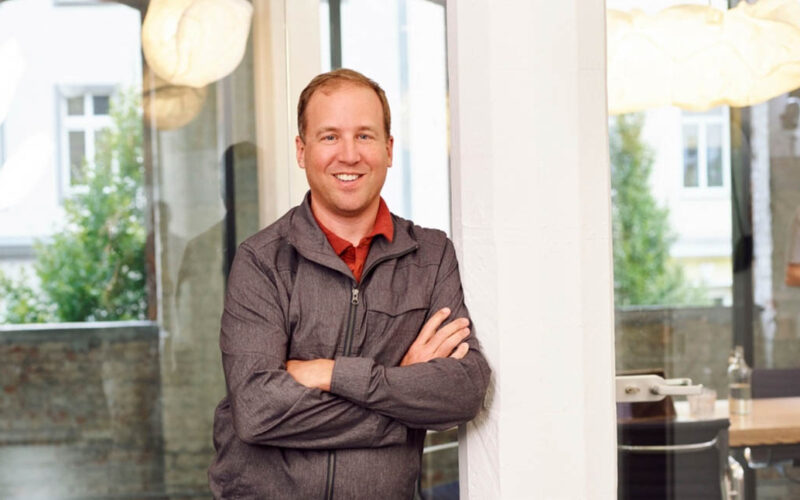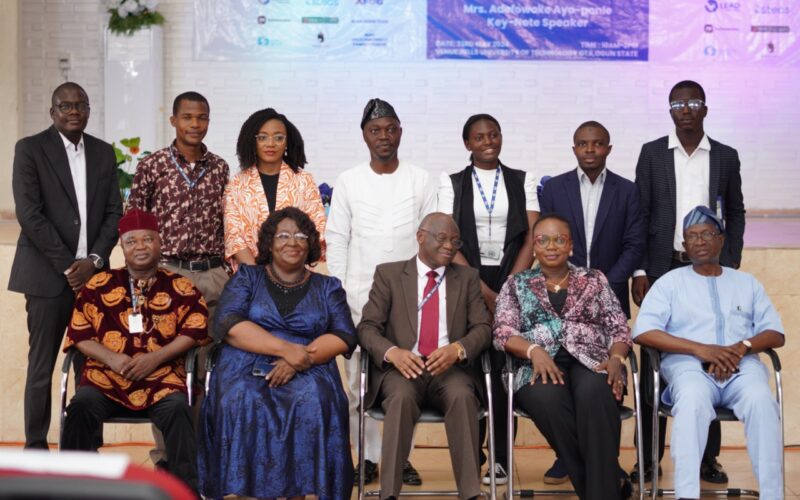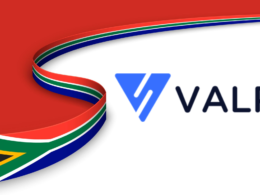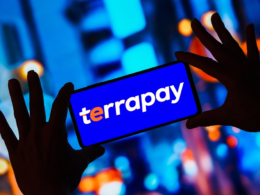Today, Google announced plans to build a new fibre optic cable named Umoja, which will connect Africa to Australia. This project aims to enhance digital connectivity, boost economic growth, and strengthen resilience across Africa.
“Umoja,” meaning “unity” in Swahili, joins Equiano as part of the Africa Connect initiative. Previously, Google announced the arrival of its mega subsea cable, Equiano, to Lagos, Nigeria, following its first African landing in Togo last April. The project is named after Nigerian-born writer and abolitionist Olaudah Equiano, also known as Gustavus Vassa.
Equiano, fully funded by Google, was the company’s third private international cable, following Dunant and Curie, and is Google’s 14th subsea cable investment globally. The cable, starting in Portugal, spans over 12,000 km along the West Coast of Africa, passing through Lomé, Togo; Lagos, Nigeria; Swakopmund, Namibia; Rupert’s Bay, Saint Helena; and Melkbosstrand, South Africa.
Umoja will provide African countries with a more reliable broadband connection, enabling them to compete more effectively on a global scale. Establishing a new route distinct from existing connectivity paths is essential for maintaining a resilient network in a region prone to high-impact outages.
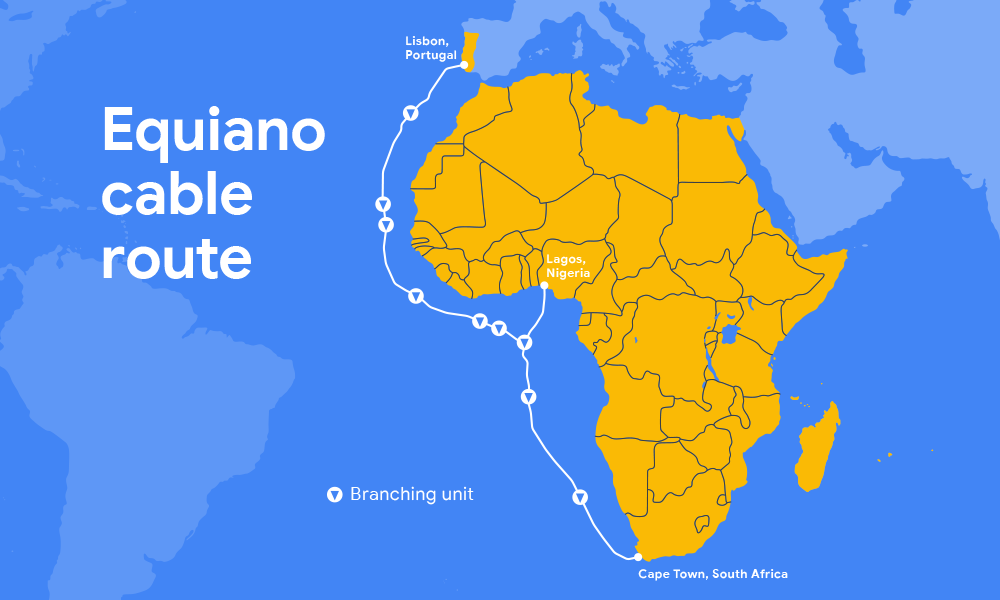
The Umoja cable route, anchored in Kenya, will traverse Uganda, Rwanda, the Democratic Republic of the Congo, Zambia, Zimbabwe, and South Africa. It will also connect to the Google Cloud region before crossing the Indian Ocean to Australia. This terrestrial path was developed in collaboration with Liquid Technologies to create a scalable route through Africa, with access points for other countries to benefit from the network.
In an official statement, Google expressed gratitude for the partnership with leaders across Africa and Australia in delivering Africa Connect to people, businesses, and governments worldwide.
Access to the latest technology, supported by reliable and resilient digital infrastructure, is critical to growing economic opportunity.
Meg Whitman, U.S. Ambassador to Kenya
Meg Whitman, U.S. Ambassador to Kenya, highlighted the significance of this development for Kenya’s digital transformation journey, noting that the benefits will extend throughout the region. “Access to the latest technology, supported by reliable and resilient digital infrastructure, is critical to growing economic opportunity,” she said.
As part of this collaboration, Google Cloud and Kenya have announced their intention to work together to enhance Kenya’s cybersecurity. The Department of Immigration & Citizen Services is evaluating Google Cloud’s CyberShield solution and Mandiant expertise to bolster the security of its eCitizen platform. CyberShield helps governments develop enhanced cyber threat capabilities, protect web-facing infrastructure, and build effective security operations.
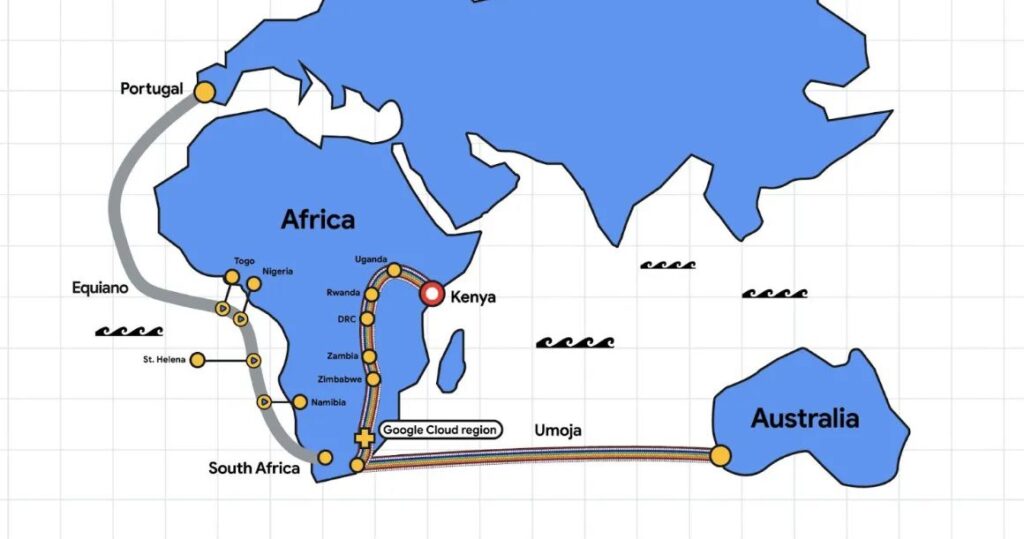
In addition to the infrastructure announcement, Google will sign a Statement of Collaboration with Kenya’s Ministry of Information Communications and The Digital Economy to accelerate joint efforts in cybersecurity, data-driven innovation, digital upskilling, and the responsible deployment of AI for societal benefits.
Similar: Microsoft to invest $1 billion in Kenyan data center after Lagos closure.
President of the Republic of Kenya, His Excellency Dr. William S. Ruto, welcomed Google’s investment, describing it as a historic milestone for Kenya, Africa, and Australia. “The new intercontinental fibre optic route will significantly enhance our global and regional digital infrastructure. By strengthening our digital backbone, we are not only improving reliability but paving the way for increased digital inclusion, innovation, and economic opportunities for our people and businesses,” he concluded.
Google champions digital transformation across the African continent.
Google’s commitment to supporting digital transformation in Africa dates back to 2007 when it opened its first Sub-Saharan Africa office in Nairobi. The company has played a pivotal role in investing in secure technology infrastructure to connect communities, expand education, and drive economic development within Africa.
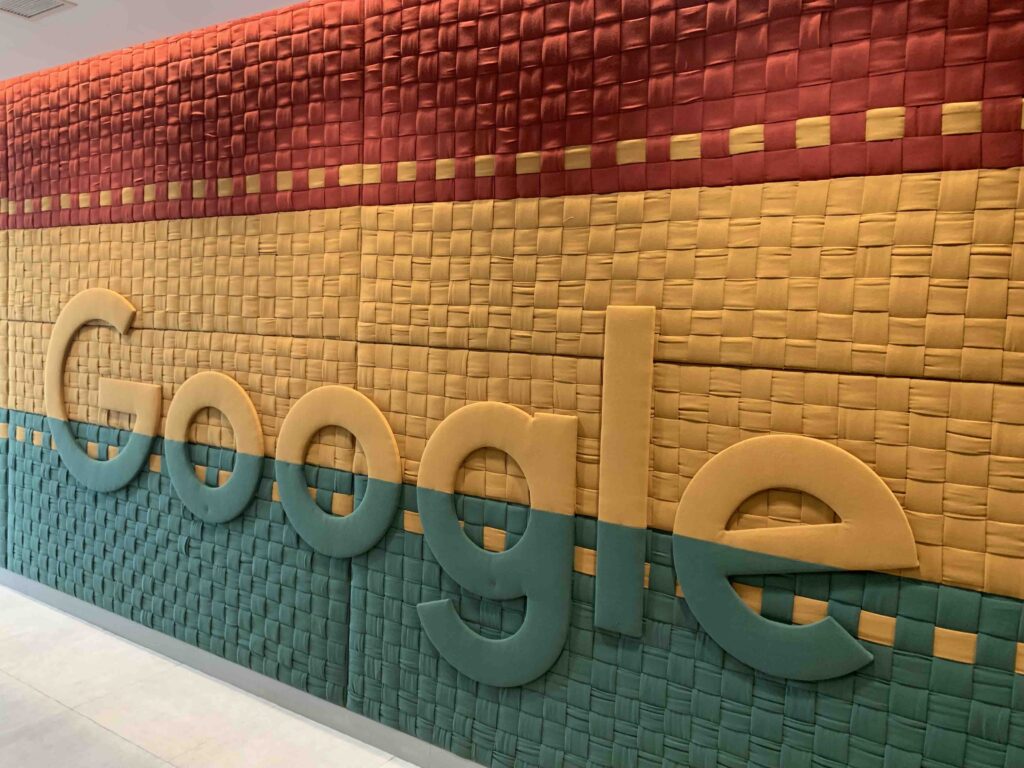
In 2021, Google pledged to invest $1 billion in Africa over five years to support connectivity, startup investments, and digital transformation initiatives. Since then, the company has invested more than $900 million in the region, demonstrating its ongoing commitment to Africa’s digital growth and innovation.






